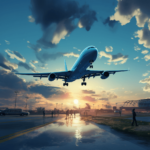— Any economic system is doomed by inflation, but it is more dangerous in developing nations since it is expected to be more erratic and greater.
Humanity has learned the value and notion of saving over time, including the habit of putting aside a specific percentage of one’s income for rainy days.
In addition to making sure he has extra money, he practices financial prudence, which enables him to budget his income, make prudent investments, and be frugal with his expenditures.
Some households in Nigeria, where inflation is on the rise, struggle not only to maintain their level of living but also to remember the word “savings” since they are not given the chance.
As a result, some ask: how can one live happily during inflation?
It is possible to live happily during inflation, by identifying what comes into your pocket and what goes out.
A study claims that through 2021, inflationary pressures will start to spread, mainly in Latin America, the Caribbean, Africa, and Western Asia. Due to increased food and oil costs, supply chain disruptions, and the depreciation of local and domestic currencies, these locations were reported to have headline inflation rates in the double digits.
Notably, Nigeria saw severe pressures on its currency’s devaluation during 2021, in comparison to nations like Argentina, Chile, and Turkey. Since then, pay indexation and the accommodating monetary policies that have persisted as part of the pandemic response have contributed to an increase in inflationary pressures.
Any economic system is doomed by inflation, but it is more dangerous in developing nations since it is expected to be more erratic and greater.
June 2022 saw an annual increase in the inflation rate to 18.60 percent. This compares to a rate of 17.75 percent in June 2021, which is 0.84 percentage points higher. This indicates that, in June 2022, the rate of inflation rose relative to the same month the year before.
All Classification of Individual Consumption by Purpose divisions that produced the Headline index showed increases. Month over month, the headline inflation rate rose to 1.82 percent in June 2022, 0.03 percent higher than the 1.78 percent figure noted in May 2022.
Also Read Helping Young Students Develop Their Skills
The Nigeria Bureau of Statistics emphasizes the rising expense of commuting in Nigeria in a report on transportation costs. The cost of bus trips within cities, constant routes, intercity bus trips, state routes charged per person, air fares for designated routes, single trips, motorcycle trips, also known as Okada per drop, and canal passenger transport are all included in the study.
Escalating Inflation
The average composite Consumer Price Index for the twelve months ending in June 2022 changed by 16.54 percent from the average of the CPI for the previous twelve months. This represents an increase of 0.62 percent from the 15.93 percent recorded in June 2021.
The NBS stated in a recent report on the inflation rate in Nigeria that:
“In July 2023, the headline inflation rate rose to 24.08% relative to June 2023 headline inflation rate which was 22.79%. Looking at the movement, the July 2023 headline inflation rate showed an increase of 1.29% points when compared to June 2023 headline inflation rate.
“On a year-on-year basis, the headline inflation rate was 4.44% points higher compared to the rate recorded in July 2022, which was 19.64%. This shows that the headline inflation rate (year -on-year basis) increased in July 2023 when compared to the same month in the preceding year (i.e., July 2022).”
Statistics on Transportation
According to the NBS study, the average rate paid by commuters for city-to-city bus trips grew month over month by 0.10 percent, from N582.06 in May 2022 to N582.61 in June 2022. On the other hand, the average fare that commuters paid for citywide bus trips increased by 42.02 percent from N410.23 in June 2021 to N582.61 in June 2022 when compared year over year.
Similarly, the average fare that commuters paid for an interstate bus trip in June 2022 was N3,662.87, which represents a month-over-month decrease of -0.16% from the figure of N3,668.64 in May 2022.
The travel costs increased by 45.21 percent year over year from N2522.44 in June 2021. The average fare paid by travelers on certain routes for a single trip went up by 0.31 percent from N55,906.86 in May 2022 to N56,082.64 in June 2022, a month-over-month rise.
In June 2021, the fare increased by 52.97 percent (N36,662.57) over the previous year. Within a different category, commuters’ average motorbike trip fare fell by -0.10% month over month from N417.39 in May 2022 to N416.97 in June 2022. Additionally, the fare increased by 43.20 percent year over year, from N291.18 in June 2021 to N416.97 in June 2022. Although the average fee for water transport (passenger transportation via waterways) rose to N943.26 in June 2022 from N941.63 in May 2022, this represents a 0.17 percent monthly rise. The fare increased from N836.23 in June 2021 to N943.26 in June 2022, a 12.80% annual increase.
In summary – Living Happily in Inflation
When inflation is recognized and used wisely, financial prudence can be maintained in the face of inflation and other growing expenses.
Gaining insight from inflation, for example, shows that tangible assets, such as buildings and land, machinery, etc., have an increasing value and may be sold for more money. During inflation, selling these assets is typically more profitable. It would be helpful for individuals and households to know when and when not to buy or spend if they were aware that a specific amount of inflation is encouraged or promoted to encourage them to spend more instead of saving money.
There can be more motivation to spend now rather than save and spend later if the purchase power of money declines with time. If money loses purchasing power over time, there may be more of an incentive to spend now rather than save and spend later. Increased spending has the potential to boost a country’s economic growth.
The United Nations Department of Economic and Social Affairs claims that because impoverished households spend a bigger portion of their income on food, they are disproportionately affected by the increase in global commodity prices.
According to a UN analysis of developing countries’ economies worldwide, impoverished households would be disproportionately impacted by growing inflation in emerging nations like Nigeria, where rates are greater.
The analysis read, “The sharp increase in food prices risks pushing millions more into poverty while exacerbating inequality even further.
“Worryingly, surging food inflation could worsen food insecurity in many developing countries that are still struggling with economic shocks from the pandemic,”
Finally, living happily in a country where the purchasing power of the currency is low is conceivable if one’s coat is tailored according to one’s clothing and one understands how inflation works.



